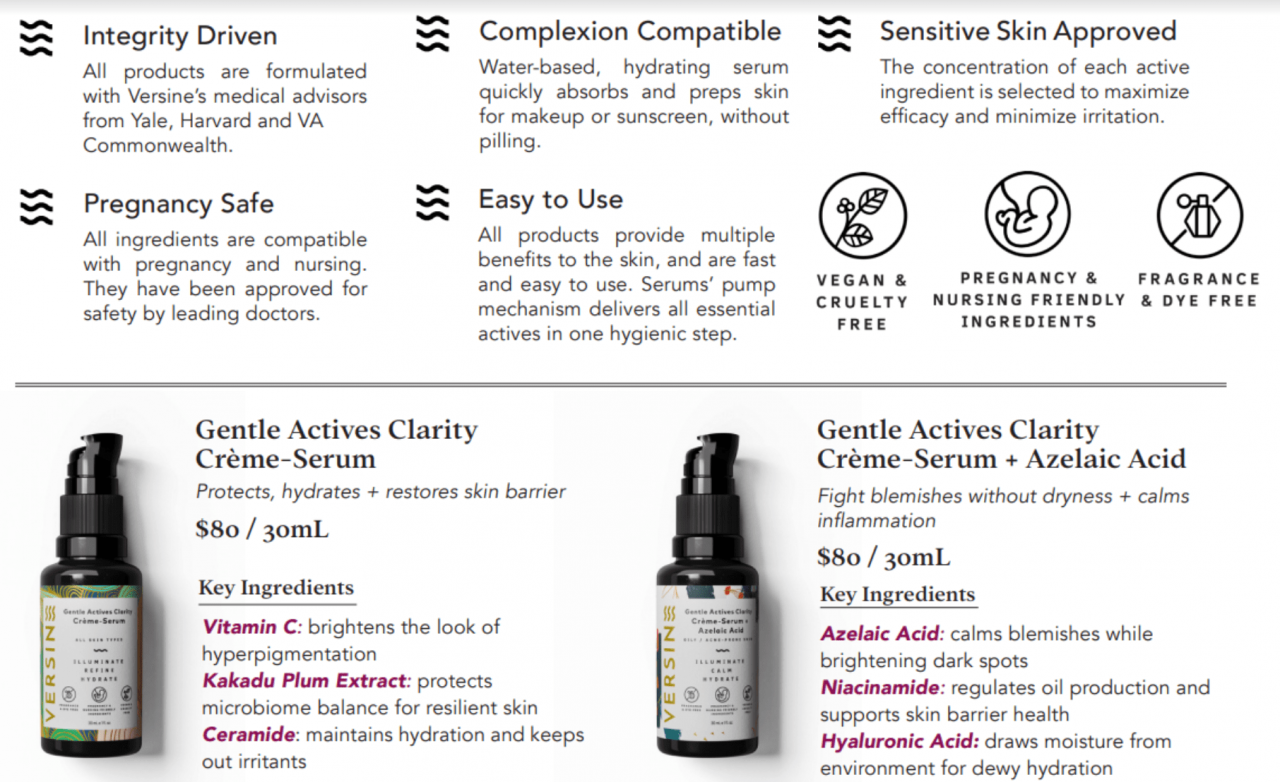Korean skincare for sensitive skin is a realm of gentle and effective products that cater to the unique needs of delicate complexions. Embark on a journey to discover the secrets of Korean skincare, where nature’s finest ingredients meet innovative formulations to soothe, protect, and revitalize sensitive skin.
From understanding the unique ingredients that Korean skincare harnesses to choosing the right products and mastering gentle cleansing and exfoliation techniques, this guide will empower you with the knowledge and tools to achieve a radiant, healthy complexion that glows with confidence.
Korean Skincare Ingredients for Sensitive Skin
Korean skincare has gained popularity for its gentle and effective approach to skincare, particularly for those with sensitive skin. Korean skincare products often incorporate unique ingredients that are known for their calming and soothing properties.
Some of the most common ingredients found in Korean skincare products for sensitive skin include:
Centella Asiatica
Centella Asiatica, also known as Gotu Kola, is a plant extract that has been used in traditional medicine for centuries. It is known for its anti-inflammatory and wound-healing properties, making it an ideal ingredient for sensitive skin.
Centella Asiatica can help to reduce redness, soothe irritation, and promote skin regeneration. It is often found in products such as serums, creams, and masks.
Green Tea
Green tea is another common ingredient in Korean skincare products for sensitive skin. It is rich in antioxidants, which help to protect the skin from damage caused by free radicals.
Green tea can also help to reduce inflammation and soothe irritated skin. It is often found in products such as toners, serums, and masks.
Snail Mucin
Snail mucin is a secretion produced by snails that has been shown to have several benefits for the skin. It is rich in hyaluronic acid, which helps to keep the skin hydrated.
Snail mucin can also help to reduce inflammation and promote wound healing. It is often found in products such as serums, creams, and masks.
Choosing the Right Products for Sensitive Skin
When choosing Korean skincare products for sensitive skin, it’s crucial to consider factors that can trigger irritation or discomfort. By understanding your skin’s needs and carefully selecting products, you can create a skincare routine that nourishes and protects your delicate complexion.
pH Levels
The pH level of your skin is a key factor to consider. Healthy skin has a slightly acidic pH level of around 5.5. Using products with a pH level that is too alkaline or too acidic can disrupt the skin’s natural balance, leading to dryness, redness, and irritation.
For sensitive skin, it’s best to choose products with a pH level close to 5.5. This will help maintain the skin’s natural pH balance and prevent irritation.
Achieve radiant and healthy skin with the Kaine Skincare line. Their products are formulated with premium ingredients that cater to your skin’s specific needs. For easy and mess-free application, opt for skincare pumps that dispense the perfect amount of product.
Enhance your skincare routine with Stacked Skincare Dermaplaning for a smoother and brighter complexion. Lastly, don’t forget the Sonage Skincare Vitamin C Serum to protect your skin from environmental stressors and boost its natural radiance.
Fragrance
Fragrance is a common irritant for sensitive skin. Artificial fragrances can contain harsh chemicals that can trigger allergic reactions and inflammation.
When choosing products for sensitive skin, it’s best to opt for fragrance-free or unscented options. This will help minimize the risk of irritation and keep your skin calm and comfortable.
Ingredients to Avoid
Certain ingredients are known to be particularly irritating for sensitive skin. These include:
- Alcohol
- Sulfates
- Parabens
- Phthalates
- Artificial colors and dyes
When selecting products for sensitive skin, carefully check the ingredient list and avoid products that contain these potential irritants.
Recommended Product Lines or Brands, Korean skincare for sensitive skin
Several Korean skincare brands offer product lines specifically formulated for sensitive skin. These brands often use gentle, hypoallergenic ingredients and avoid harsh chemicals or fragrances.
Embark on a skincare journey that will leave your complexion radiant and revitalized. Kaine skincare offers a range of innovative products that cater to all skin types. Their skincare pumps ensure hygienic and convenient application, while stacked skincare dermaplaning treatments exfoliate and smooth your skin for a flawless finish.
For a boost of antioxidants and radiance, try the Sonage skincare vitamin c serum .
Some recommended product lines or brands for sensitive skin include:
- Dr. Jart+ Cicapair Line
- Purito Centella Green Level Calming Line
- Laneige Cream Skin Refiner
- Klairs Supple Preparation Facial Toner
- COSRX Low pH Good Morning Gel Cleanser
These products are known for their soothing and calming properties, making them suitable for even the most sensitive skin types.
Gentle Cleansing and Exfoliation
Sensitive skin demands a gentle touch, especially when it comes to cleansing and exfoliation. Harsh ingredients and excessive scrubbing can exacerbate irritation and inflammation. Here’s how to approach these skincare steps with care.
Choosing the Right Cleanser
- Opt for fragrance-free and sulfate-free cleansers:These ingredients can strip away the skin’s natural oils, leading to dryness and irritation.
- Consider creamy or milky cleansers:They are typically more gentle on the skin and help soothe and hydrate.
- Avoid foaming cleansers:While they may feel refreshing, they can be too drying for sensitive skin.
Exfoliation for Sensitive Skin
Exfoliation can help remove dead skin cells and improve product absorption, but it’s crucial to do it gently.
- Choose a physical exfoliator with soft, rounded particles:Avoid harsh scrubs that can cause micro-tears in the skin.
- Use chemical exfoliators with caution:AHAs (alpha hydroxy acids) and BHAs (beta hydroxy acids) can be effective for sensitive skin, but start with low concentrations and gradually increase as tolerated.
- Exfoliate no more than once or twice a week:Over-exfoliation can disrupt the skin’s barrier and lead to irritation.
Moisturizing and Soothing Sensitive Skin: Korean Skincare For Sensitive Skin
Moisturizing is crucial for sensitive skin as it helps protect and strengthen the skin’s natural barrier. Choosing the right moisturizer is essential, and it should be fragrance-free, hypoallergenic, and non-comedogenic to avoid irritation. Look for moisturizers containing ceramides, hyaluronic acid, or glycerin, which help hydrate and soothe the skin.
Apply the moisturizer gently, avoiding rubbing or tugging.
Soothing Ingredients
In addition to moisturizing, using soothing ingredients can help calm and reduce inflammation in sensitive skin. Aloe vera has anti-inflammatory and antioxidant properties that help soothe irritated skin. Chamomile is another soothing ingredient that can help reduce redness and itching.
Ceramides are lipids that are naturally found in the skin’s barrier and help protect and strengthen it.
Sun Protection for Sensitive Skin
Sun protection is crucial for all skin types, but especially for those with sensitive skin. The sun’s harmful UV rays can cause redness, irritation, and even sunburn on sensitive skin. Therefore, it is essential to use sunscreen daily, even on cloudy days, to protect your skin from damage.
paragraphWhen choosing a sunscreen for sensitive skin, it is important to look for products with gentle formulas and high SPF protection. Physical sunscreens, which contain ingredients like zinc oxide or titanium dioxide, are generally considered to be more suitable for sensitive skin than chemical sunscreens, which contain ingredients like oxybenzone or octinoxate.
Physical sunscreens sit on top of the skin and reflect UV rays, while chemical sunscreens absorb UV rays and convert them into heat.
Choosing the Right Sunscreen
- SPF Protection:Choose a sunscreen with an SPF of 30 or higher for adequate protection against both UVA and UVB rays.
- Formula:Opt for physical sunscreens containing zinc oxide or titanium dioxide, which are less likely to irritate sensitive skin.
- Ingredients:Avoid sunscreens containing fragrances, dyes, or other potential irritants.
- Application:Apply sunscreen liberally to all exposed skin 15-20 minutes before going outdoors and reapply every two hours or more often if swimming or sweating.
Last Point
Korean skincare for sensitive skin is not merely a routine but a ritual of self-care and nourishment. By embracing the gentle touch of nature’s finest ingredients and adopting a skincare regimen tailored to your unique needs, you can unlock a world of radiant, healthy skin that exudes confidence and well-being.
Remember, skincare is a journey, not a destination. With patience, consistency, and a touch of Korean skincare magic, you will witness a transformation in your skin that will leave you feeling beautiful, inside and out.
Key Questions Answered
Is Korean skincare suitable for all skin types?
While Korean skincare is renowned for its gentle and effective formulations, it is essential to remember that individual skin types may respond differently to any skincare product. Always conduct a patch test before incorporating a new product into your routine, and consult a dermatologist if you have any specific skin concerns.
How often should I exfoliate sensitive skin?
Exfoliation is crucial for removing dead skin cells and promoting cell turnover, but it is essential to be gentle with sensitive skin. Exfoliate no more than once or twice a week, using a gentle exfoliator designed for sensitive skin.
What ingredients should I avoid in skincare products for sensitive skin?
Common irritants to avoid in skincare products for sensitive skin include fragrances, dyes, alcohol, and harsh surfactants. Additionally, some essential oils and certain acids may also cause irritation. Always read product labels carefully and opt for fragrance-free, hypoallergenic products.





Leave a Reply